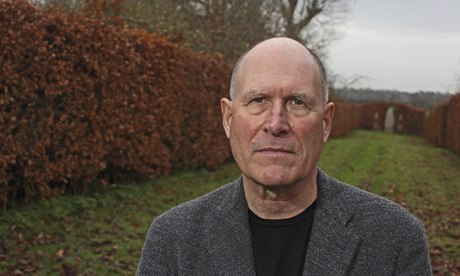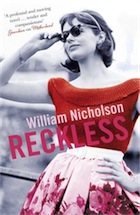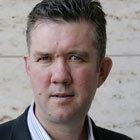The author and screenwriter, William Nicholson , talks to Nicholas Wroe about emotional openness, storytelling and how Hollywood critiques help you focus as a novelist

'After all that angst trying to write Eng Lit, I just tried to write a story' … William Nicholson. Photograph: Eamonn Mccabe
 'If you are a screenwriter and you write a novel, then you are still a screenwriter," explains William Nicholson. "With two novels you become a screenwriter who writes novels, and with three you are a novelist and screenwriter. But write seven or eight novels …? At the moment the people in my different worlds don't have much idea of the other things I do. The film world especially has no clue that I've written children's books, adult novels and plays. What I'd really like is to be up for a film award and literary award in the same year. That would confuse them."
'If you are a screenwriter and you write a novel, then you are still a screenwriter," explains William Nicholson. "With two novels you become a screenwriter who writes novels, and with three you are a novelist and screenwriter. But write seven or eight novels …? At the moment the people in my different worlds don't have much idea of the other things I do. The film world especially has no clue that I've written children's books, adult novels and plays. What I'd really like is to be up for a film award and literary award in the same year. That would confuse them."A bold ambition, and looking at Nicholson's track record, not an entirely fanciful one. As a screenwriter he has been Oscar-nominated for adapting his own play about CS Lewis, Shadowlands, and for his work on the Russell Crowe blockbuster Gladiator. On stage Shadowlands won an Evening Standard award in London and a Tony in New York, and as a writer of children's fiction Nicholson has won the Smarties Gold award as well as the Blue Peter book of the year.
Next month he publishes Reckless, his eighth adult novel, and the fifth in what has become a loose series exploring the lives of a linked group of English families from the second world war until the present day. Reckless begins in 1962 and features the Cuban missile crisis and the Profumo affair as well as the domestic lives and loves of his ever-expanding cast. "I didn't intend at the outset to write a series," he says, "and the novels can stand alone. But if you want to follow the connections across the generations, they are there."
And as the same characters have cropped up across the books, so have Nicholson's preoccupations, which often revolve around the importance of love and the difficulty of finding and maintaining it in a world where even the most apparently straightforward of human interactions can be misunderstood and feared. "I read to grow in understanding and empathy of other people," he says. "And that's also what drives me as a writer. Part of that is a belief in truth telling. I hold to the view that the more truth you tell, including about yourself however uncomfortable that might be, the more valuable that is to everybody. We all put up a front and we are all frightened of each other's fronts. So I try to work against that."
More

No comments:
Post a Comment